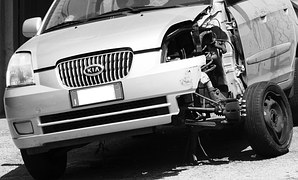I Don’t Want To Use Or Go Against My Own Insurance After A Maryland Car Accident.
Perhaps it should go without saying that if an individual, through an act of negligence, causes a car accident, motor vehicle collision, or other calamity involving an automobile, they are responsible for whatever damages ensue. Maryland, like most states, requires certain minimum levels of automobile liability insurance. As Attorney Eric T. Kirk will tell you.

In Maryland, that minimum level is $30,000 of liability insurance coverage. So, although an individual is legally ultimately responsible for whatever damage they caused through their own negligence, the law also requires that they have insurance of at least $30,000 to pay for those damages. It might be said that typical car accident is likely to involve: property damage, personal injury, medical expenses, lost wages and other consequential damage, such as the use of a rental automobile. The person that caused the accident, or more practically, their insurance company, is going to be responsible, ultimately, for those losses. However, that insurance company is not going to pay those expenses on an “up-front”, or periodic basis. They will pay those expenses, ultimately, by the payment of settlement funds or the satisfaction of a verdict after a trial. That’s where personal injury protection comes in. Personal injury protection, or PIP, is first-party insurance. It is required to be carried on every Maryland car, unless affirmatively declined by the owner of that vehicle.* The owner pays premiums every year for PIP. It is first-party, no-fault insurance. If a car is involved in an accident, the driver and the passengers are entitled to the payment of medical expenses and the payment of the portion of lost wages up to $2,500, unless more is purchased-irrespective of whom, or if anyone, caused the accident. I’ve heard many clients say over the years “I don’t want to use my own insurance”.
There is some notion that if you use your own PIP insurance your rates will go up. That is not the law.
Maryland law provides the framework within which insurance companies can raise rates. The filing of a PIP claim is not a valid reason for an insurance company to raise your rates. In fact, “Maryland law prohibits an insurance company from increasing your premium (including surcharging, reclassifying, or removing a discount) as a result of a claim or payment made under PIP coverage.” The true benefit of PIP in Maryland is that the insurance company paying those PIP benefits has no subrogation rights as to the recovery from the at-fault party as they might in some states. In other words, you can collect benefits for damages for lost wages and medical expenses from your own insurance company, and then collect those same and damages from the at-fault person, and your insurance company has no right of set-off or recovery from the money you get from the at-fault party.
There is no penalty for using your PIP benefits.
The other instance in which someone may need to use their own insurance arises in the context of uninsured and underinsured motorist claims. An uninsured claim is one in which you are injured, caused to miss work, and incur medical expenses in a motor vehicle accident caused by a driver that has no insurance. An underinsured claim is one in which you are damaged as the result of a car accident, and the at-fault person has inadequate insurance to cover all of your losses. Here again Maryland, law requires uninsured/underinsured motorist coverage unless the owner of the car affirmatively declines the coverage. Like PIP, uninsured coverage is first-party insurance. You pay for it every time you pay your premium. Although it may be that the at-fault person is ultimately responsible for all losses, the reality is collecting from an uninsured person can be an arduous task, if not outright impossible. In these situations there really is no choice other than to use one’s uninsured motorist coverage.
Here again, the mere filing or recovery a benefit under a single uninsured motorist claim is not a valid reason under the Insurance Code to not renew your policy.
Note, however, that: “an insurer may cancel or nonrenew a policy if you have filed three or more “not-at-fault” claims within a three-year period of time. Comprehensive and uninsured/underinsured motorist coverages are considered “not-at-fault” coverages.” I’ve never had a client with the extraordinarily bad luck to be injured by three uninsured drivers.
*The Assembly has recently enacted a change in this process. Marylanders now have the option of carrying less insurance. An insured may now reject personal injury protection altogether, under specific circumstances. See Insurance Article, Md. INSURANCE Code Ann. § 19-506.1.



